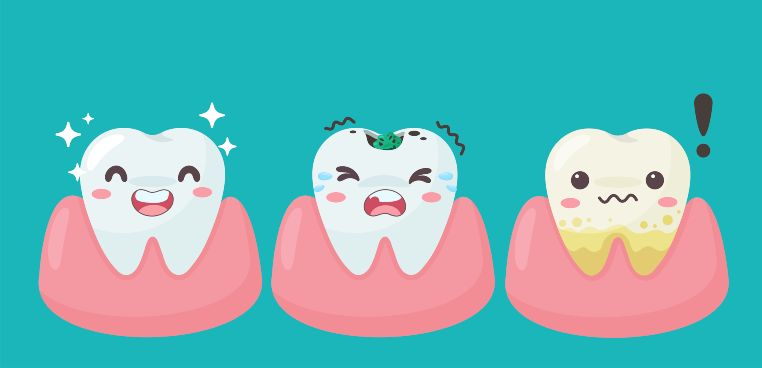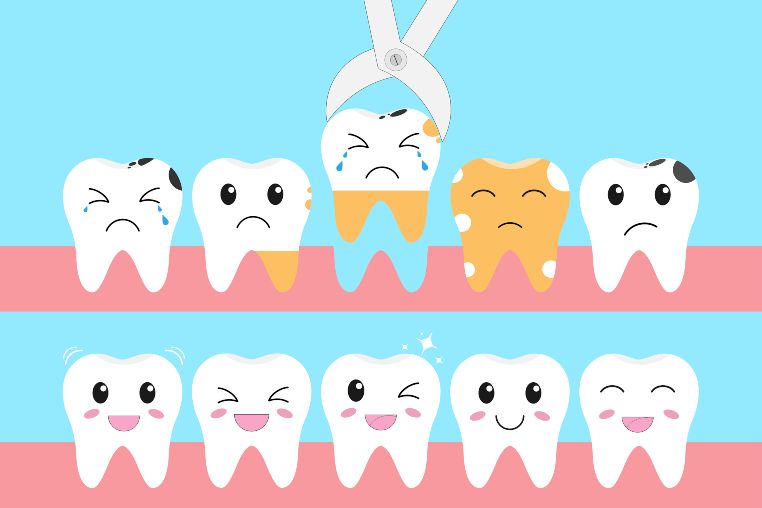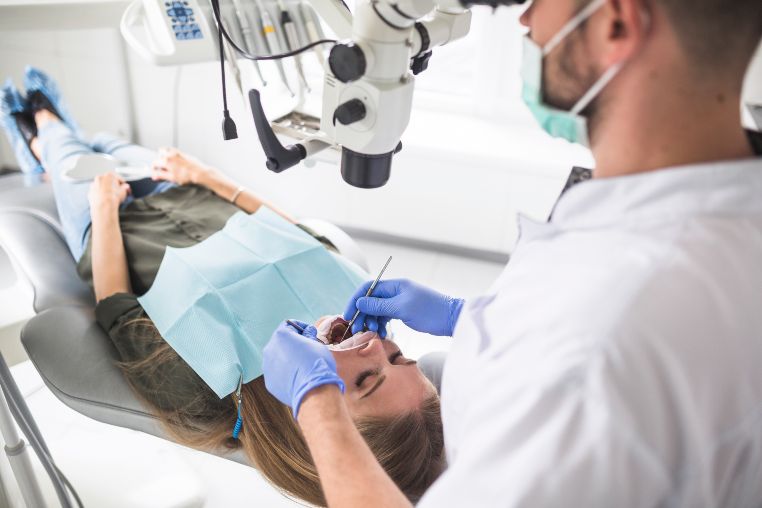Tooth decay is a common problem for many adults. Without regular brushing, flossing, watching your diet, and proper oral hygiene, anyone can suffer from tooth decay. But tooth decay is not exclusively a problem that adults have to deal with but is often an issue for children and toddlers. As a matter of fact, it has been shown that up to 42 percent of kids between the ages of 2 and 11 will get cavities in their primary teeth (these are also often referred to as “baby teeth”).
Once a baby reaches between 8 and 12 months old, their two teeth out in front will start to peek their way through the gums and show themselves. These first, cute little teeth are actually some of the most susceptible to decay and are more likely to develop cavities than the other teeth that come in later. The development of cavities in babies’ upper front teeth is often called “baby bottle tooth decay,” which usually needs to be dealt with my getting fillings. The term “baby bottle tooth decay” doesn’t mean that only bottle-fed babies get cavities, as both bottle-fed and breast-fed babies are susceptible to tooth decay.
As a parent, you’ll want to do whatever you can to help prevent cavities in your children’s teeth if at all possible. Those cute, little baby teeth need all the help they can get to stay healthy and grow strong. You may not know how to prevent tooth decay in toddlers and tooth decay in children, but you’re in luck because that’s exactly what we’re going to cover today in this article.

To properly know how to fight tooth decay in toddlers and children, we first need to know how we get cavities to start off with. One of the main sources of tooth decay comes directly from the food we eat and give to our children. Heavy exposure to lots of sugar and starches will feed bacteria in the mouth which in turn causes the bacteria to release harmful acids that wear down the tooth enamel (which is the outer layer of the tooth that protects the inner tooth and nerves from decay) and cause your teeth to rot. Babies will generally get an intake of sugar from drinking juice, breast milk, or baby formula. Babies that go to sleep with their bottles are much more susceptible to tooth decay due to the fact that their sugar intake is much higher and the juice or formula will often sit in their mouths for long periods of time and fuel the bacteria to do a lot more damage. This is where the term “baby bottle tooth decay” comes from.
The next biggest reason for tooth decay in kids is a lack of attention to their dental hygiene. You must make sure that you have a steady tooth care regimen for your children’s oral hygiene. Make sure they brush their teeth 3 times every day, and try and floss their teeth at least every couple of days to ensure that no loose food got stuck anywhere where it can decompose and cause cavities. Without taking these steps to protect your children’s teeth, they’ll be left defenseless to tooth decay and cavities and their teeth won’t stand a fighting chance.
These basic steps for oral hygiene are just the basics, but they make worlds of difference in your oral health. Keep reading to find out more about how you can protect your kids’ teeth from cavities and tooth decay.

So the first thing you’ll want to do in order to prevent your child from developing cavities is to make sure they don’t go to bed with a bottle or sippy cup. Water is fine, of course, but juice, baby formula, breast milk, and regular milk all have enough sugar in them to wear down your baby’s sensitive little teeth. If you’re going to give your baby sugary drinks, it’s better that they drink them quickly rather than letting the sugary liquid sit around in their mouths and wear down at their teeth. This will limit the amount of time the sugar has to feed the bacteria and keep your kids’ teeth safer.
Citrus, like lemons and oranges, as well as other highly acidic food will also wear down the enamel on a child’s teeth, so feed them these in moderation. Make sure you’re keeping up with the proper brushing and flossing regimen and get your first dentist appointment for your child before their first birthday. When brushing your child’s teeth, try using a toothbrush with soft bristles. You can even give them a little brush after they eat sweets to make sure that no sugar is left over between or on their teeth. Be sure NOT to use fluoride toothpaste for your kids until they are at least 2 years old. Fluoride toothpaste can be corrosive for young teeth whose enamel hasn’t fully developed yet. There is a lot of child-friendly toothpaste you can choose from, so you won’t need to worry about finding the right one. To brush properly, gently stroke the soft-bristled toothbrush over your child’s teeth and a 45-degree angle and brush for about 2 minutes.
By following these tips, you are doing the best you can to keep your kids teeth healthy and helping them avoid any unpleasant dentist visits in the future.

The best way to deal with tooth decay is to prevent it from happening in the first place! To do that, you should follow the information given above and you’ll be on the right track. However, if it so happens that your child has developed some cavities in their teeth, they’ll need some dental work done to get rid of the cavities and clean their teeth (or tooth) out.
Smaller cavities will need a bit of drilling to clean the tooth out and a filling, while larger cavities with extensive damage done to the tooth will need a full crown to bring the tooth back to proper functionality. Getting these done will stop the spreading of the cavity and give your child a fresh start for their teeth.
There are occasions when the decay has spread through the whole tooth and it’s too far gone for any fillings or crowns. In these cases, the tooth will have to be removed before the decay can spread to any other teeth and cause bigger problems. If a child’s primary tooth is full of decay, it can potentially spread up into the gums and start rotting the adult teeth which causes a lot more complications and can be very unpleasant to deal with.
A lot of people think that a baby’s primary teeth don’t need that much attention since they’ll fall out anyway, and the main part of the work needs to be done on the adult teeth. But that’s not at all the case! Baby teeth are much more sensitive and susceptible to decay and cavities and as such need to be taken care of properly to ensure proper oral hygiene for the future.

